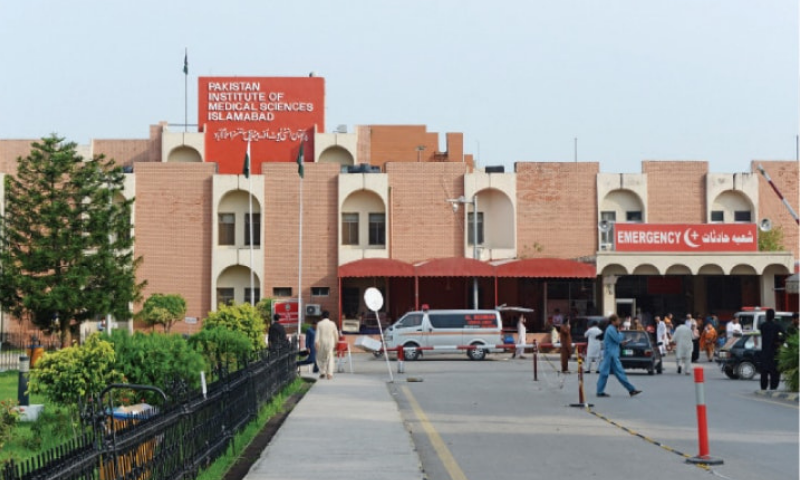ISLAMABAD: As the number of critical Covid-19 patients has been increasing, the Pakistan Institute of Medical Sciences (Pims) has decided to suspend elective surgeries.
However, emergency surgeries will be performed as per routine and there will be no refusal policy for such cases.
According to a document of Pims signed by Deputy Executive Director Dr Zulfiqar Ghouri and available with Dawn, “it is critical for compliance of all head of clinical departments that due to heavy load of Covid-19 patients in fourth wave, the services of all elective/planned surgeries and operative procedures are hereby suspended except emergency surgeries only.”
Meanwhile, the Pakistan-China Institute (PCI) organised a webinar on “Covid-19 origin and international cooperation” under its flagship event series, “Friends of Silk Road”.
Experts at the webinar examined various reports and analyses about the origins of the coronavirus pandemic. The webinar was attended by over 50 participants from different countries of Asia and Africa, and featured six panelists, including Ambassador to United Nations Munir Akram, Naghmana Hashmi, former ambassador to China, Senator Mushahid Hussain, the chairman of Senate Defence Committee, Hasaan Khawar, public policy expert, Hassan Daud Butt, CEO of KP Board of Investment and Trade, and Dr Manzoor Ahmed, former ambassador to WTO.
The dialogue was moderated by Mustafa Hyder Sayed, executive director of Pakistan-China Institute.
The webinar discussed a report of 17 US intelligence agencies presented to the US president on August 24, which remained “inconclusive” regarding the origins of the coronavirus pandemic. This follows the March 13 joint report of experts from WHO and China, comprising almost 20 experts from over a dozen countries, which said it is “extremely unlikely” that the coronavirus pandemic was a leak from a lab.
Mustafa Hyder Sayed highlighted how politicisation of the pandemic was replacing multilateral cooperation in the fight against the pandemic. He said: “Playing politics with the pandemics detracts developing countries like Pakistan from effectively fighting it. If it weren’t for China in ensuring the donation of vaccines, almost 3.5 million doses, we would not have been able to save so many lives of Pakistanis.”
Munir Akram called the politicisation of tracing the origins of the virus a ‘regrettable move’, and said the efforts had been tainted by conspiracy theories and smear campaigns. He also said that this had set a wrong precedent by exploiting the WHO as a ‘tool for political manoeuvring’.
Talking about the close cooperation of China with WHO to trace the origins of the virus, Ambassador Akram said the only way forward out of this misinformation epidemic was through “science as origin tracing is science, trust science, stay away from prejudice and politics.”
Hassan Khawar highlighted how the coronavirus pandemic had taken more than four million lives so far, while continuing to wreak havoc throughout the world. He said that despite efforts to find the origins of the virus, there is no scientific evidence to blame China.
Naghmana Hashmi called Covid-19 a ‘politically-charged virus’ that has increased global competition, and created two blocks in the international system: one which alleges the virus was created in a lab in Wuhan whereas the other thinks that it was created in a lab in Maryland, US.
Senator Mushahid Hussain quoted the August 24 report by 17 US’ intelligence agencies which failed to trace the origins of the coronavirus or lay blame on China. He said despite this, China is demonised through a politically-motivated campaign. He mentioned how President Trump had coined the term ‘China virus’, and said such ethnic targeting is similar to racism, Islamophobia and anti-Semitism.
Meanwhile, members of the National Assembly visited the National Institute of Rehabilitation Medicine (NIRM) along with Zala Qaiser, daughter of Speaker National Assembly Asad Qaiser on Thursday.
The delegation was briefed about the working of the hospital. The faculty members were inquired about their requirements and the lawmakers also took input from patients about the standard of services.
Published in Dawn, August 27th, 2021














































